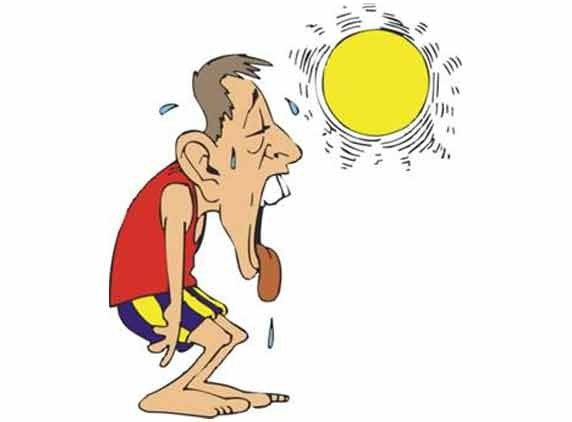Science has proved: Your intelligence will decline significantly without air conditioning
Studies have shown that the brain cannot function as normal in a high temperature environment.
Have you ever experienced such hot and sunny days that you feel so sluggish, so tired, that you feel your brain flowing into water?

The brain cannot function as normal in a high temperature environment.
Previous laboratory studies have demonstrated that the brain cannot function as normal in a high temperature environment. Until now, the School of Public Health, with the head of Harvard TH Chan, has proven successful that this is true for all cases outside the laboratory.
This study was published in the journal PLOS Medicine. They tracked the cognitive ability of 44 students in dorm rooms with and without air conditioning in Boston, England. The study was conducted in July 2016, a record month of high temperatures in Boston's history.
They let students take a multiple choice test on the phone about the possibilities: choice, memory, emotional control, and concentration when interrupted. The team said the students in the room without air conditioning have a relatively low index of these abilities compared to the students in the air-conditioned room.
Although this study is only considered on a small group of students in a certain region around the world, the research team asserted in the article that their research will make people more concerned with bad influence. often overlooked that weather causes human health.

Hot sun causes our minds to stagnate.
Cedeño-Laurent, the lead author, said: 'Most of the previous research on the health effects of temperature is only done on people with weak health like the elderly. So that seems to create a prejudice that people in general are not affected by temperature '.
Research data were collected for 12 consecutive days: the first 5 days had normal temperature (15-31 ° C); 5 days after abnormal heat (28-36 ° C); The last 2 days the temperature cooled down to an average of about 28 ° C.
The daily cognitive performance of students is assessed through color test and addition of cell division each morning at the beginning of the day and the night before going to bed.
In addition to eliminating other factors that can affect brain activity, students must wear biological sensors to monitor daily activity and sleep. There is a facility to record the temperature, humidity, noise level, and carbon dioxide in the dormitory.
Obviously, students in air-conditioned rooms are less affected by temperature, humidity, and noise factors during the 12-day experiment. As a result, in the 5 days with normal temperature, the learning efficiency of the students is similar. But 5 days with unusually hot temperatures, the students in the non-conditioned room had a 13.4% slower cognitive response and 13.3% lower learning scores than the students in the room with the peace.

Students in non-conditioned rooms have slower cognitive reactions than students in air-conditioned rooms.
In addition, it is more interesting that this difference remains until the cooling down time in the last two days.
The co-author of the study, Joseph Allen, explains: 'The indoor temperature will continue to increase even when the outdoor temperature has dropped. So it caused the misconception that the danger was over. Especially in cold climates in the world, buildings are often designed to hold heat so the time to lower the temperature in the house is longer. "
Allen and Cedeño-Laurent conclude that, in the face of rising global temperatures, buildings with smart heat treatment equipment in the US will be a necessary public health, especially for those with The audience spends most of their time indoors.
- Evidence shows that humans are declining intelligence
- Science proves that drummers have more intelligence than people
- How to fix when the air conditioner is flashing
- Solution 'Will intelligence be changed over time?'
- German scientist found a way to turn air conditioning into a CO2 vacuum, preventing the Earth from heating up
- Intelligence in the perspective of science
- What is Artificial Intelligence? What is AI (artificial intelligence)?
- There are 8 types of intelligence and everyone owns at least 2 types
- Superhuman intelligence is a disaster for people?
- Science says that 14 parts of the body will reveal your intelligence
- The first stadium in the world equipped with air conditioning
- AlphaGo's victory: Great event in the evolutionary history of mankind
 'Fine laughs' - Scary and painful torture in ancient times
'Fine laughs' - Scary and painful torture in ancient times The sequence of numbers 142857 of the Egyptian pyramids is known as the strangest number in the world - Why?
The sequence of numbers 142857 of the Egyptian pyramids is known as the strangest number in the world - Why? History of the iron
History of the iron What is alum?
What is alum?